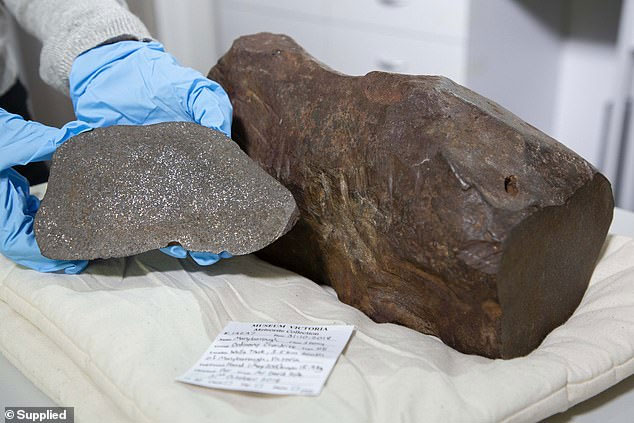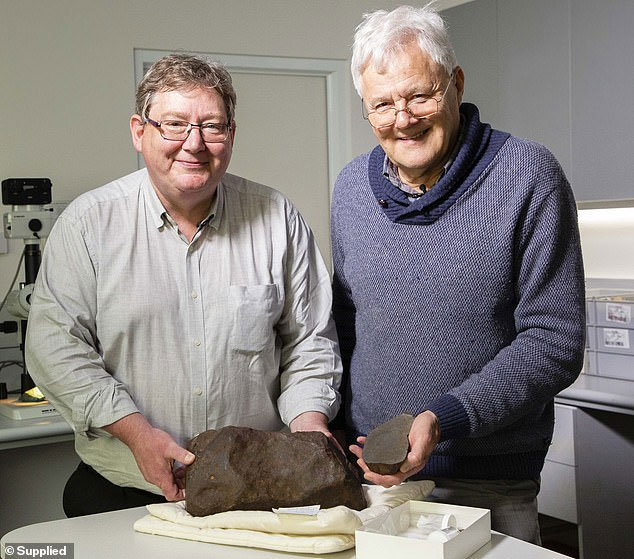Australia: 4 years of plowing and destroying rock masses, it is said that it is a very precious item of 4.6 billion years old
A gold hunter spends nearly 4 years breaking the mysterious reddish-brown rock found near the house but to no avail. When brought to the museum, the scientific community said this is extremely rare.
The Daily Mail reported on July 17 that David Hole discovered red blocks of rock buried near his home in Maryborough, Queensland, Australia in 2015.

The stone thought that the main discarded item was a part of 4.6 billion years of meteorite.
For 4 years, the Australian man sought all the ways to break the strange thing because it was a valuable piece of gold inside. However, Hole's efforts failed.
Frustrated, Hole donated a block of rock to scientists at the Melbourne Museum. Here, he was told that the object he had owned for 4 years was a 4.6 billion year natural meteorite, more rare than any precious metal.
Unable to break with a conventional cutting tool, the expert must use a saw with a diamond blade to cut the stone.

Bill Birch (right), geologist, said the meteorite block helps a lot in determining Earth's age.
Bill Birch, geologist, said the rock is a Chondrit H5 meteorite.
"The rock seems to be formed around the same time that the Earth formed but its mineral composition was far from the current Earth," Dr. Birch told the Daily Mail Australia.
Birch added: "This is an important finding in providing evidence of when and how the solar system formed. It also helps determine the age of the Earth."
The meteorite block of 4.6 billion years is thought to form in the asteroid belt between Mars and Jupiter . According to Mr. Birch, when the 17kg mass of meteorite fell to Earth about 200 years ago, based on the fact that it was not weathered too strong.
- 'Plowing' movie episodes are not good, can even harm the brain?
- 3 billion tons of meteorite fall to Earth
- Mysterious cut bisects rocks over 10,000 years old in Saudi Arabia
- 'Fossil' 3.7 billion years old is once again shocking because it seems to be just normal stone
- There is evidence of life on Mars 4 billion years ago
- are we all aliens?
- Meteors bring gold to the earth
- Unexpected findings shocked archaeological circles
- Collisions bring gold and platinum to Earth
- Farming changes help reduce the average heat in Europe
- Find the world's largest 3 billion year old diamond
- The discovery of a rock planet is very similar to the globe
 Van Allen's belt and evidence that the Apollo 11 mission to the Moon was myth
Van Allen's belt and evidence that the Apollo 11 mission to the Moon was myth The levels of civilization in the universe (Kardashev scale)
The levels of civilization in the universe (Kardashev scale) Today Mars, the sun and the Earth are aligned
Today Mars, the sun and the Earth are aligned The Amazon owner announced a secret plan to build a space base for thousands of people
The Amazon owner announced a secret plan to build a space base for thousands of people